BOONE, N.C.—Tara Early of Morehead City just graduated from Appalachian State University with a Bachelor of Science degree in environmental science. She is now applying to graduate schools, and her experiences as a researcher at Appalachian have helped make her a strong candidate for some of the best doctoral-level toxicology labs and programs in the country.
For example, as part of a course on ecotoxicology taught this past spring by Dr. Shea Tuberty, a professor of biology, she and two other students collected numerous water, soil and fish samples to measure levels of toxins in and around Little Mountain Creek, a stream in Badin, North Carolina, that empties into the Yadkin River.
But that is not all. Early can also plug the fact that she communicated that research effectively – namely on a poster aimed at showing evidence of social injustice in Badin to scientists to policy makers. Social justice is one of three pillars of the sustainability movement spreading across communities and academic institutions worldwide, of which Appalachian is a leader. Other pillars are the environment and the economy.
The poster is titled “Effects of ALCOA Solid Waste Leachate on Water Quality of the Yadkin River: A Badin, NC Case Study for Ecotoxicology’s Role in Social Justice.” It placed first in the undergraduate category of a poster competition at the 37th annual North American/7th World Congress meeting of the Society of Environmental Toxicology and Chemistry (SETAC), which was held this past November in Orlando. The win marked the first time an Appalachian student has placed in a poster competition at this SETAC conference, and it included a cash prize of $300.
“I am hopeful this win will help me get into graduate school,” Early said. “Right now, I am interested, broadly, in exploring the impact that humans have on the environment and how that reverberates back to affect humans, specifically in developing countries or underserved communities. I would like to have a career where I can continue to study and address problems like those that exist in Badin.”
Tuberty called Early’s win “a huge deal.”
“SETAC is the society of environmental toxicologists worldwide with equal representation from academia, government agencies and the private sector in all its publications, operations, committees and meetings,” he said. “Tara truly impressed the judges with her knowledge and ability to communicate the issues. Her poster award is an absolutely top honor for an undergrad toxicology student and demonstrates her excellence in both research and her ability to communicate that effort to peers and experts alike. I am very proud of Tara as well as her student colleagues, obviously.”
Poster presentations are a popular way for scientists to share their findings. Early’s poster was based on a three-year research project featuring students in Tuberty’s ecotoxicology course, which he teaches each spring in Appalachian’s Department of Biology. Early and two other students in the ecotoxicology class, Justin Parnell and Michael Ezzelle, took samples in Badin over spring break in 2016 and wrote a report on their findings and the findings of the classes from the two previous years. Ezzelle is a senior biology major from Fayetteville. Parnell, a biology major from Hendersonville, graduated last May.
The poster’s authors are Tuberty, Early, Parnell, Ezzelle as well as Badin Concerned Citizens; Ryke Longest and David Schwartz of the Duke Environmental Law and Policy Clinic; and Will Scott of Yadkin Riverkeeper.
The poster fulfills two major aims. First, it documents the environmental risk from toxins leaching from one of the 44 known landfills around the retired Aluminum Company of America (ALCOA) facility on the shores of Badin Lake. The facility operated as an aluminum smelting plant from 1916 to 2007. “During that time,” the poster reads, “cyanide, fluoride, PCBs, PAHs and other toxins, including arsenic, were released through ALCOA’s 13 outfall pipes into Badin Lake and into Little Mountain Creek.”
The poster’s second aim is to illuminate “an aquatic ecotoxicology/social inequality case study,” in which an underprivileged community in Badin must contend with toxic leachate from one of the only retired ALCOA plants not designated as a Superfund site by the U.S. Environmental Protection Agency. This matters in terms of social justice because, as the poster states, “(s)ite designation under Superfund provides funding for and oversight of cleanup activities. Often problems that exist in lower income communities are overlooked by political and/or government entities and therefore continue on indefinitely.”
Two maps on Early’s poster show that the location of the retired ALCOA plant in Badin is “in a minority and low-income area of concern.” To hear Early tell it, a great deal of thought went into maximizing the impact of those maps in the poster.
“I chose a grey color scheme because I had two very colorful maps that told the most important story about Badin,” Early said. “I wanted to immediately draw the reader’s eye to those maps.”
The three-year analysis of Badin’s water, sediments, fish and macroinvertebrates supports Superfund status for Badin’s contaminated sites, having consistently shown elevated levels of cyanide, fluoride and PCBs. Superfund status appears to be in reach.
“Because our data supported the Badin community’s request for Superfund status, the U.S. EPA agreed to conduct a preliminary assessment for Superfund status of the retired ALCOA smelter site,” the poster reads. “Through a diverse partnership that strategically combined complementary resources we have made great strides towards the goal to correct this long overlooked issue.”
About the Department of Biology
The Department of Biology, housed in Appalachian’s College of Arts and Sciences, is a community of teacher-scholars, with faculty representing the full breadth of biological specializations – from molecular genetics to landscape/ecosystem ecology. The department seeks to produce graduates with sound scientific knowledge, the skills to create new knowledge, and the excitement and appreciation of scientific discovery.
About Appalachian State University
As a premier public institution, Appalachian State University prepares students to lead purposeful lives. App State is one of 17 campuses in the University of North Carolina System, with a national reputation for innovative teaching and opening access to a high-quality, cost-effective education. The university enrolls more than 21,000 students, has a low student-to-faculty ratio and offers more than 150 undergraduate and 80 graduate majors at its Boone and Hickory campuses and through App State Online. Learn more at https://www.appstate.edu.
What do you think?
Share your feedback on this story.
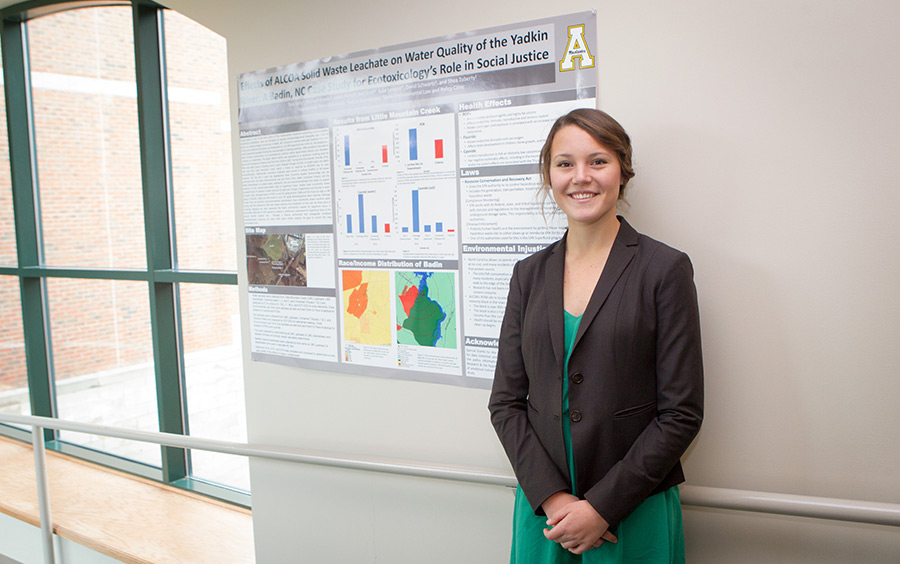
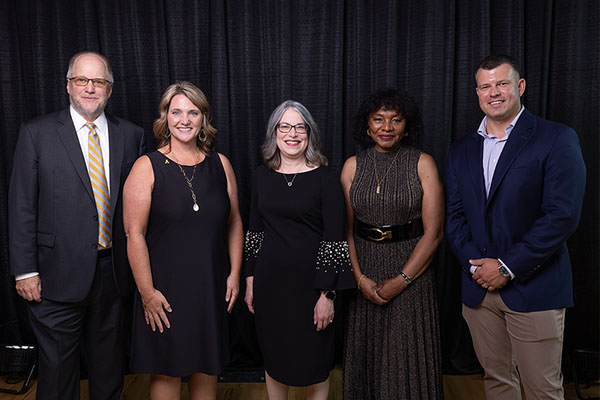


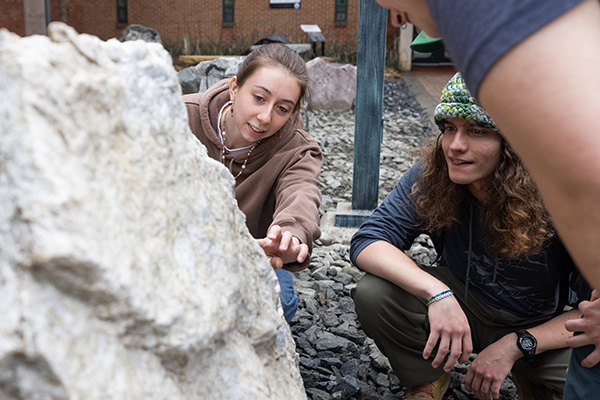
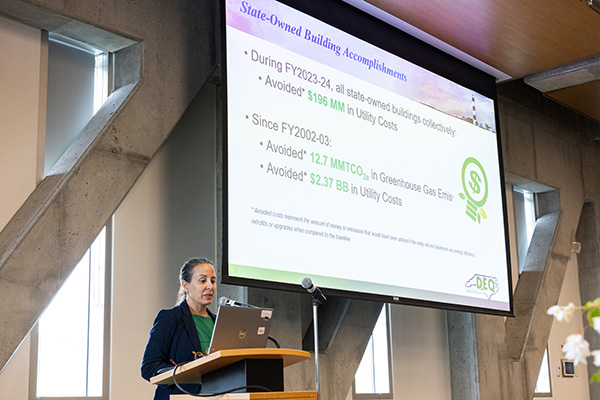

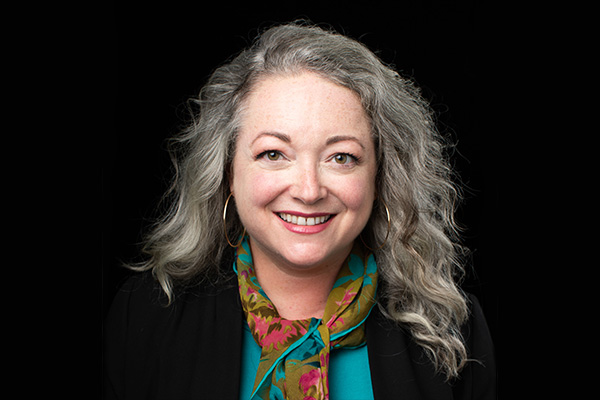

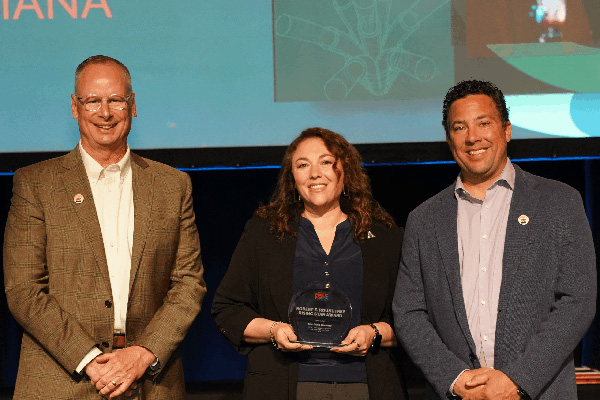
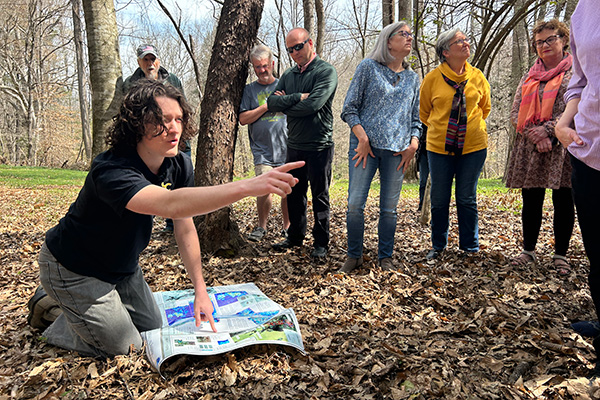
![‘Dragon prince’ dinosaur may be missing link in T. rex evolution [alumni featured]](/_images/_posts/2025/06/dragon-prince-600x400.jpg)
![Is Carb Cycling the Key to Increasing Your Endurance? [faculty featured]](/_images/_posts/2025/06/carb-cycling-600x400.jpg)